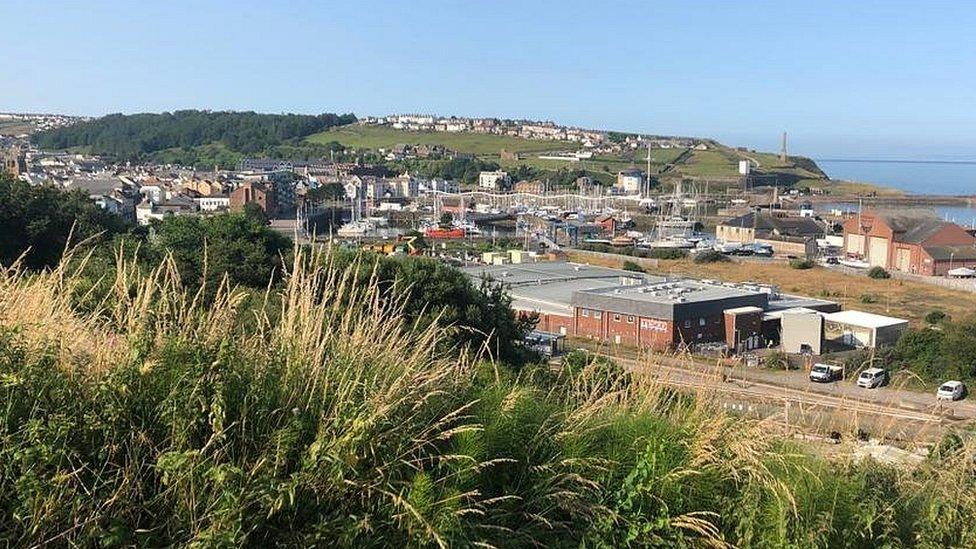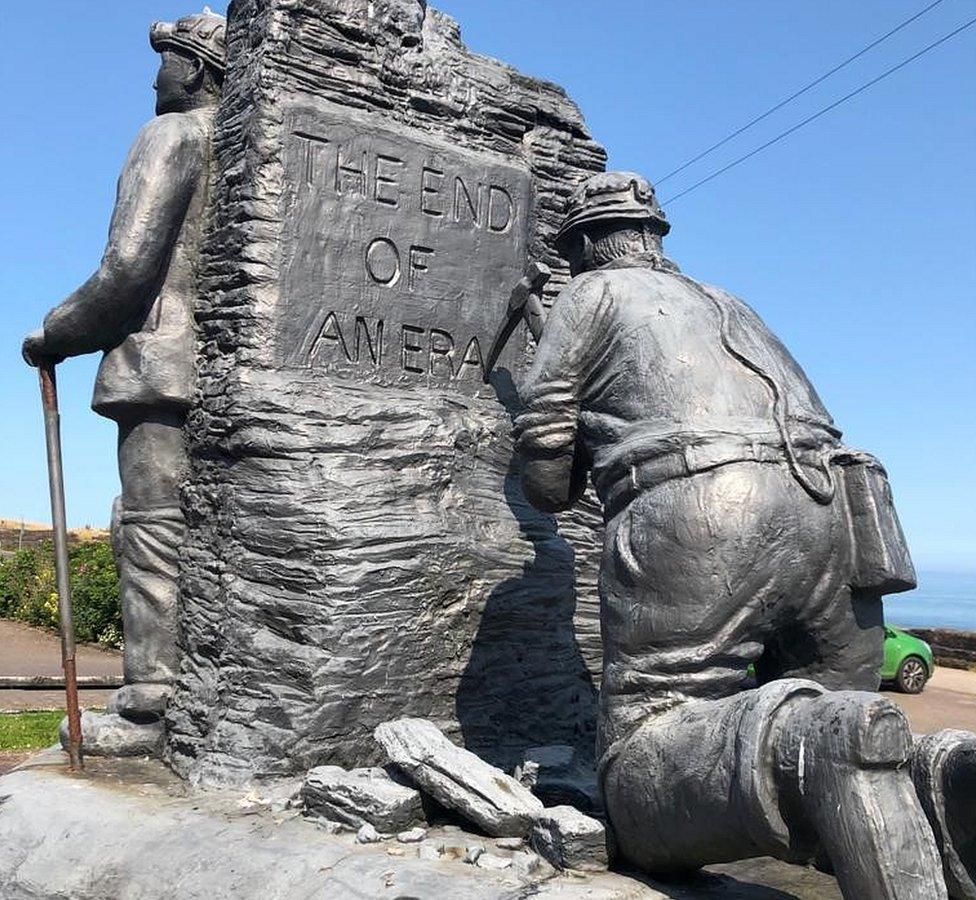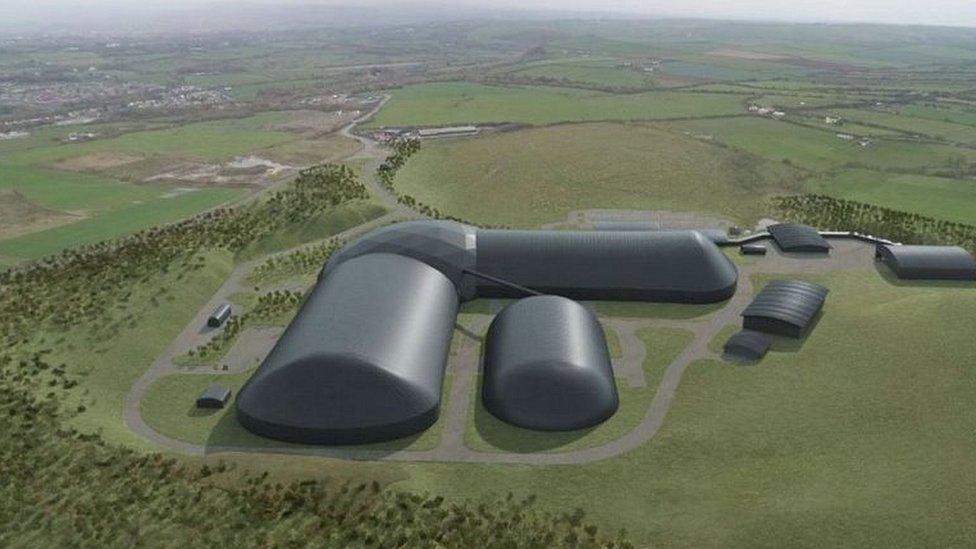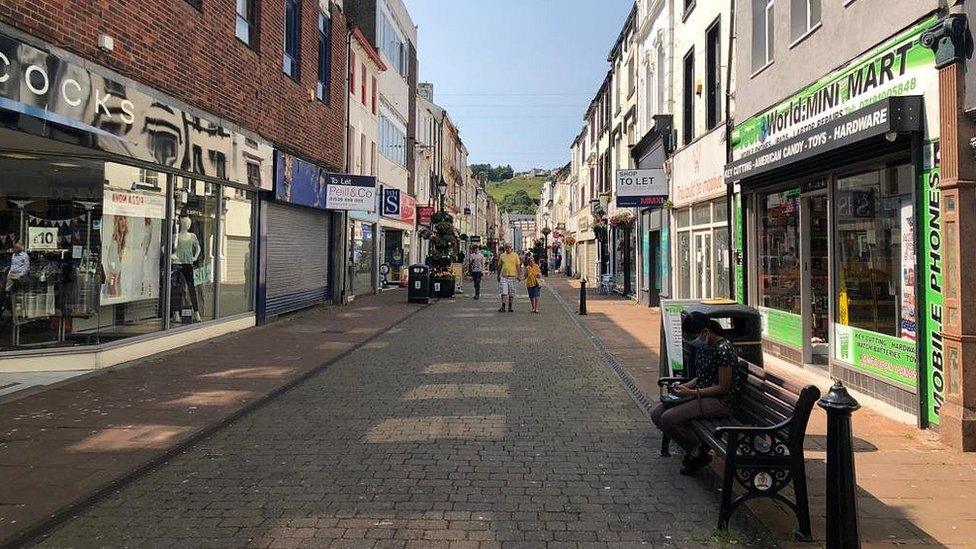Johnson hints that new coal mine for Cumbria will get go-ahead
- Published
- comments

Digging down to level up? Proposals for a new mine at Whitehaven are highly controversial
Governing is about choices - and it's about decisions.
And, every so often, a decision comes along that encapsulates the dilemmas ministers face.
Consider what the government might think of as its core, even defining priorities.
High up on the list would be what it calls "levelling up", the idea that geography shouldn't be destiny, that regional inequalities should be lessened.
Also up there would be the commitment to net-zero-carbon emissions by 2050 to restrict climate change.
And then, in light of the war in Ukraine, there is boosting energy security and reducing the UK's dependence on Russia.
Now think of the decision, being reached within government right now, on whether to allow a new coal mine to be opened near Whitehaven in Cumbria.
The black stuff in question, under the Irish Sea, is what is called metallurgical coal, which is used in making steel.
Around 40% of this type of coal the UK needs is imported from - yes, you guessed it - Russia.
Coal is widely seen as one of the dirtiest and most polluting energy sources.
But west Cumbria is crying out for skilled, long-term, well-paid private-sector jobs.
So what should ministers do?
You can imagine the criticism, whether they say yes or no.

Most of the UK's coalmining industry is gone
I've been following this for the last year or so, mesmerised by its awkwardness for those who have to decide.
It reminds me of a fundamental truth about reporting: it is a privilege to be an observer, asking sceptical questions.
But it's undeniably easier to ask questions than to answer them.

This is how the new coal mine could look
So tricky has been this, the prospect of the first new deep-coal mine in the UK in 30 years, that noisy disagreement and dither have dominated.
The government asked the Planning Inspectorate to examine the arguments. It has done that and handed its report to the government.
And a deadline of Thursday 7 July was set for a decision by the Communities Secretary Michael Gove.
That is a fortnight away.

West Cumbria is in need of high-skilled, long-term jobs
On Wednesday, tantalisingly, we got what looked like a glimpse of the government's instinct.
Deep into Prime Minister's Question Time, Conservative MP Chris Green asked about the importance of levelling up and the approach of other countries to the burning of different types of coal.
The prime minister knew the question was coming. Boris Johnson could have offered a generic answer. He could have ducked it entirely.
But instead he said this: "We can all be proud of the way in which we reduced CO2 emissions in this country, but plainly it makes no sense to be importing coal, particularly for metallurgical purposes, when we have our own domestic resources."
To supporters of the mine in and around Whitehaven, that sounded like a possible prime ministerial thumbs-up for it getting the go-ahead.
Those around Mr Gove remain tight-lipped and sources in No10 caution about reading too much into the PM's comment.
Questions and challenges
If Mr Johnson's outlook is soon reflected in the formal decision, we can expect to see opponents of the mine challenge it in court.
And the government will face questions on precisely how this will level up, as they describe it. These include:
How many jobs will it bring?
How soon?
And for how long?
Will steel producers in the UK definitely be happy with the coal?
Is its sulphur content compatible with their blast furnaces?
How much of it will be exported?
And if they say no to the mine:
What is the alternative to help west Cumbria economically?
What is the carbon footprint of importing so much metallurgical coal?
And how will the UK's dependence on Russian supplies be cut - and at what cost, and to whom?
There are tough, legitimate, sceptical questions, whatever - difficult - decision is reached.